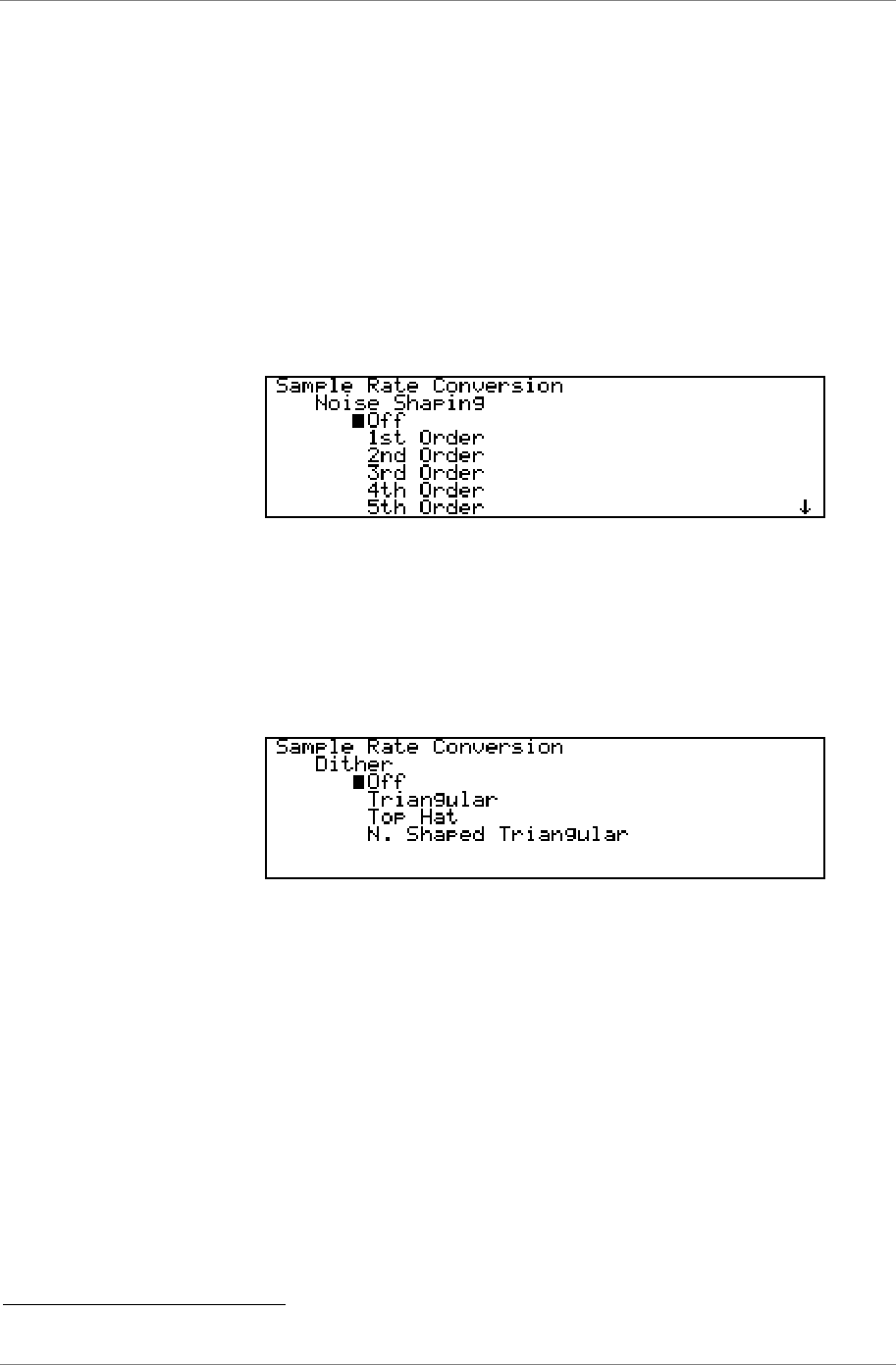
dCS 974 User Manual Manual for Software Version 1.0x
dCS Ltd May 2001
Manual part no: DOC1241121A1
Page 47
Document No: OS-MA-A0124-112.1A1
Contact
dCS
on + 44 1799 531 999 email to: more@dcsltd.co.uk
(inside the UK replace + 44 with 0) web site: www.dcsltd.co.uk
Noise Shaping
Noise Shaping is a technique in which the noise energy added by truncating a
longer word is pushed into the less audible parts of the spectrum - giving a
useful improvement in perceived noise level. There is a trade-off between noise
floor improvements in the mid-band, where the ear is most sensitive, and
increased noise at the top of the audio band, which the ear does not hear but
your system might. Noise Shaping is achieved by processing the truncated bits
so it is not available if the output word length is the same as the input word
length. Dither is different (and additional) to Noise Shaping, and is necessary
under some circumstances. dCS consider Dither to be unnecessary in many
situations - Noise Shaping alone is sufficient, and lower noise. See the section
Word Length Reduction, page 104 for more information.
Entering the menu shows:
Select the required Noise Shaping characteristic from the list and press Set.
The options are up to 10
th
order, for sample rates up to 96kS/s. Noise Shaping
is not applicable to DSD. For 32 kS/s, 44.1 kS/s, 48 kS/s, 88.2 kS/s and 96 kS/s
the curves are individually optimised
8
.
Dither
Entering the Dither submenu shows:
Select the required Dither characteristic from the list and press Set.
N. Shaped Triangular means Noise Shaped Triangular.
For more information on dither, and different dither types, see the section
Dither on page 85 and Figure 31 to Figure 34.
8
If you need curves optimised at other sample rates, contact us.


















